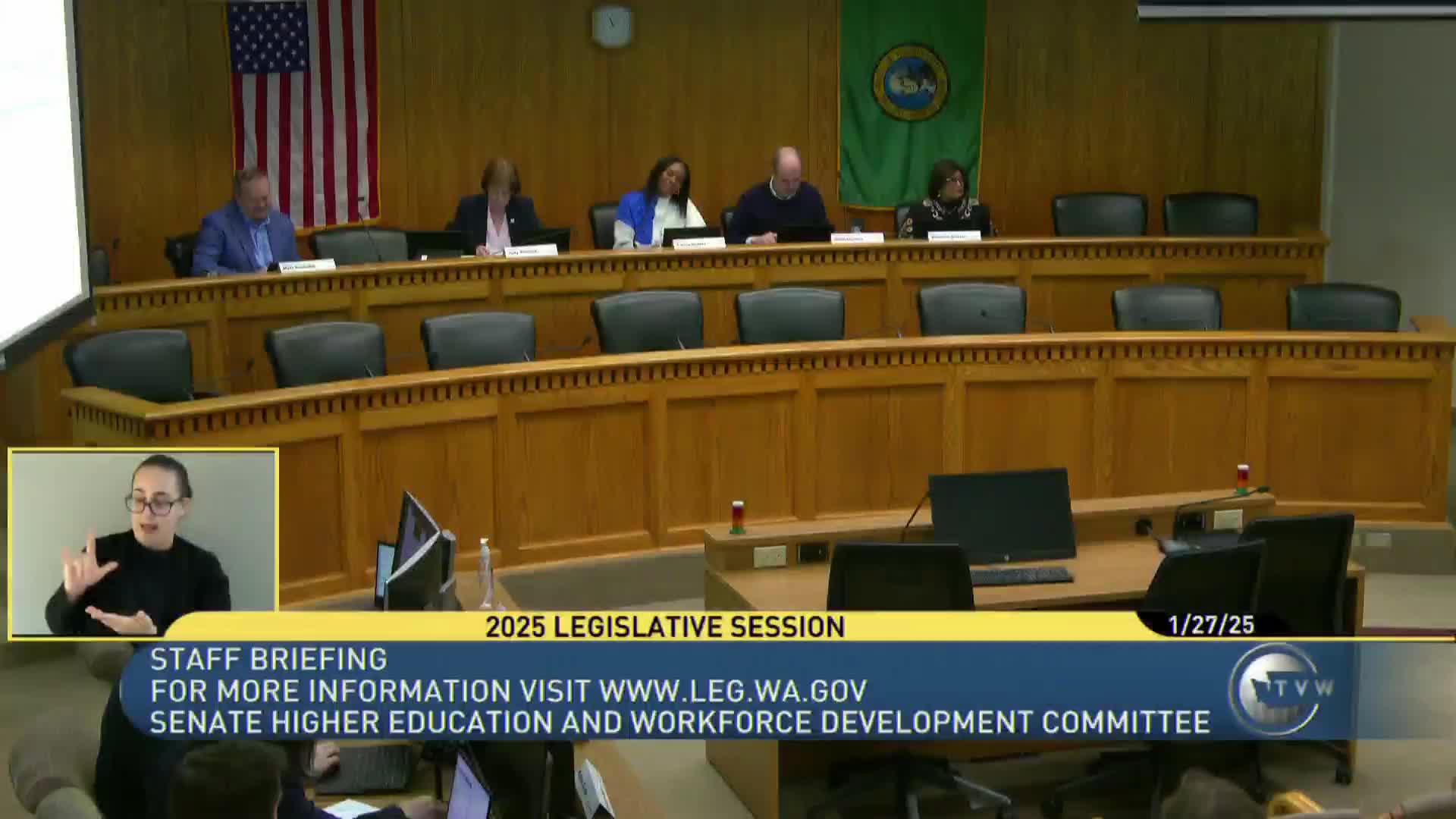Senate holds public hearing on SB 5321 to expand medication-abortion access at public colleges; testimony sharply divided
Get AI-powered insights, summaries, and transcripts
Subscribe
Summary
Senate committee heard staff briefing and more than two dozen public witnesses on SB 5321, which would require student health centers at public institutions to provide medication abortion access or referrals; supporters stressed access and safety, opponents raised moral, safety and data-privacy concerns.
The Senate Higher Education & Workforce Development Committee opened and closed a public hearing today on Senate Bill 5321, which would require student health centers at public institutions of higher education to offer access to medication abortion beginning in the 2026–27 academic year or provide information and referral services if a campus lacks a health center.
Kelly Gunn, staff to the committee, summarized the bill: it applies to six baccalaureate institutions and 34 community and technical colleges and would require institutions with health centers to offer medication-abortion access either through an existing public program or other delivery methods such as telehealth; campuses without health centers must provide referral information. Gunn also noted a partial fiscal note was available and that further analysis including community and technical colleges was underway.
Senator Tawana Nobles, prime sponsor of SB 5321, framed the bill as a matter of studentsaccess and equity. "Medication abortion is FDA approved, safe, and effective," Nobles told the committee, and she argued campus access reduces travel, time and financial burdens on students juggling school and work. Nobles said the bill aims to ensure timely, affordable access on campus or via telehealth and to reaffirm Washington's commitments to equity and autonomy.
Public testimony split along predictable lines. Advocates for Youth and campus organizers described personal and operational barriers students face and urged passage. Charlie Brenner, who described themselves as a former community college student who had an abortion, said campus health centers could remove long-distance travel, lost wages and logistical obstacles: "Making on campus abortion pills available to students...removes the obstacle course," Brenner said.
Sullivan Taylor, a Clark College student and member of Advocates for Youth, said forcing disadvantaged students to carry pregnancies would harm their education; Haley Gray, Washington state coordinator for abortion access at Advocates for Youth, said the bill allows campuses to contract with third parties and draw on existing programs and emphasized that several other states have enacted similar measures.
Opposition testimony focused on moral objections, safety concerns with telehealth or remote provision, and data-privacy issues. Speakers from Students for Life and faith-based groups argued that abortion is not a human right and urged the committee to oppose the measure. Several opponents raised clinical-safety concerns about medication abortion delivered without in-person ultrasound screening and cited isolated instances of adverse outcomes; speakers also warned of possible increased costs associated with post-abortion complications.
Committee members asked technical questions about implementation and compliance. Senators raised HIPAA and FERPA concerns and asked whether telehealth or shared devices could lead to privacy breaches; staff and testifiers acknowledged data privacy issues and said HIPAA/FEPRA safeguards should be considered in guidance. Kelly Gunn reiterated that the bill requires institutions to provide referrals if they lack a health center and that institutions must offer website information on reproductive services including prenatal care and termination options.
The committee timed public testimony and accepted remote and in-person witnesses across multiple panels; no committee vote was taken at the hearing. The record includes both personal testimony describing difficulty accessing out-of-state care and organizational testimony raising policy, privacy and safety questions. The committee closed the hearing and adjourned after taking testimony.
